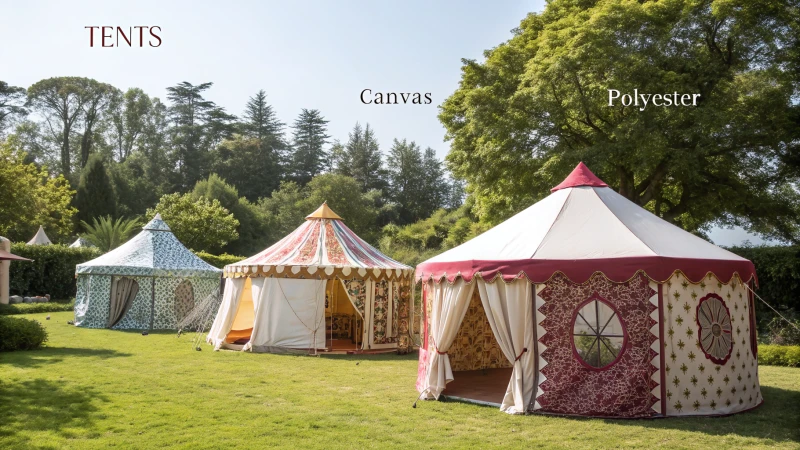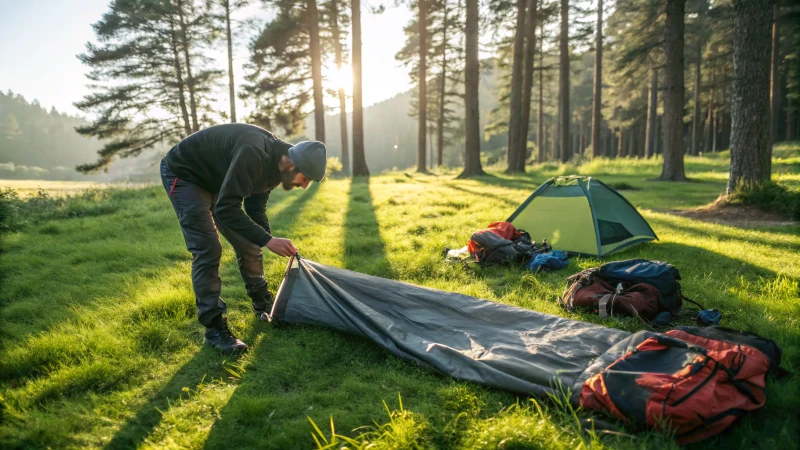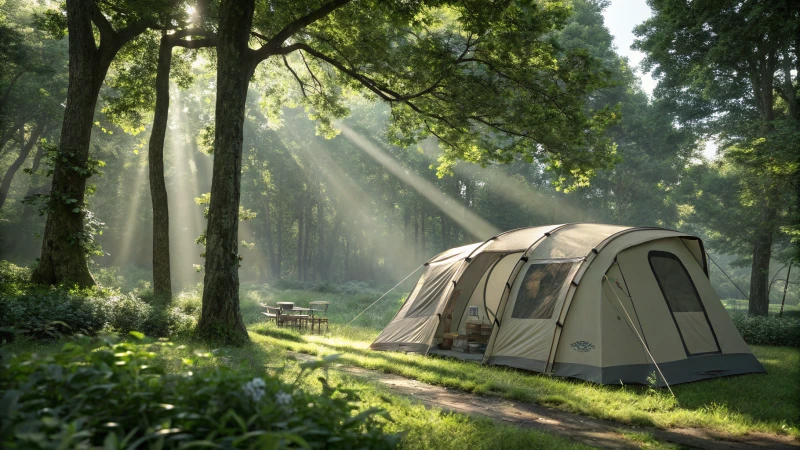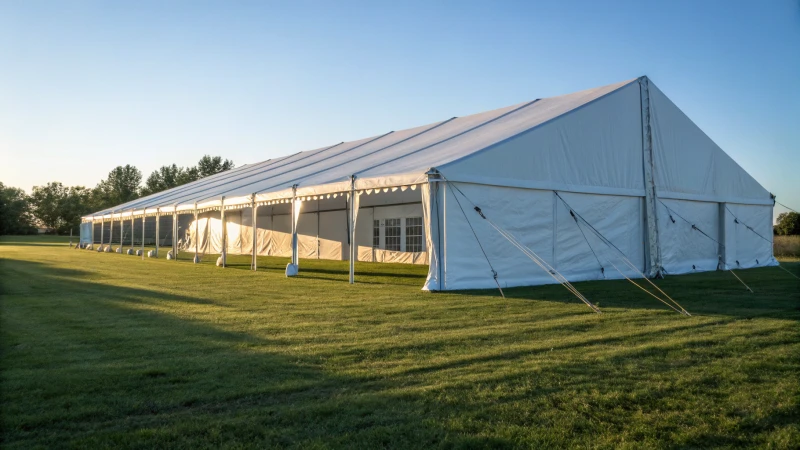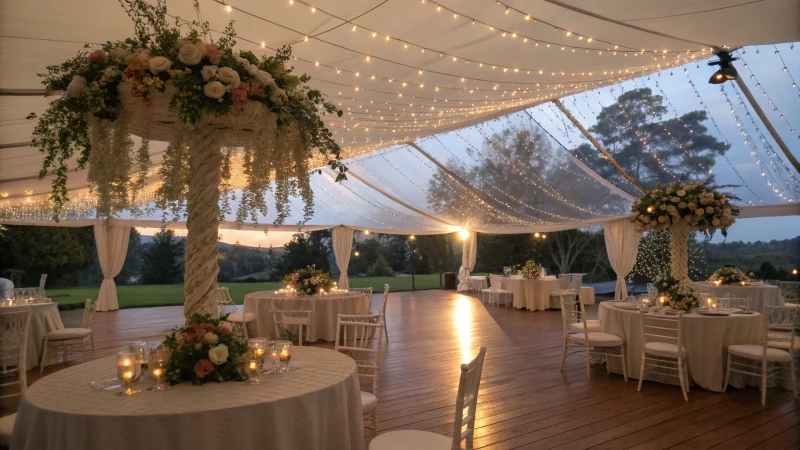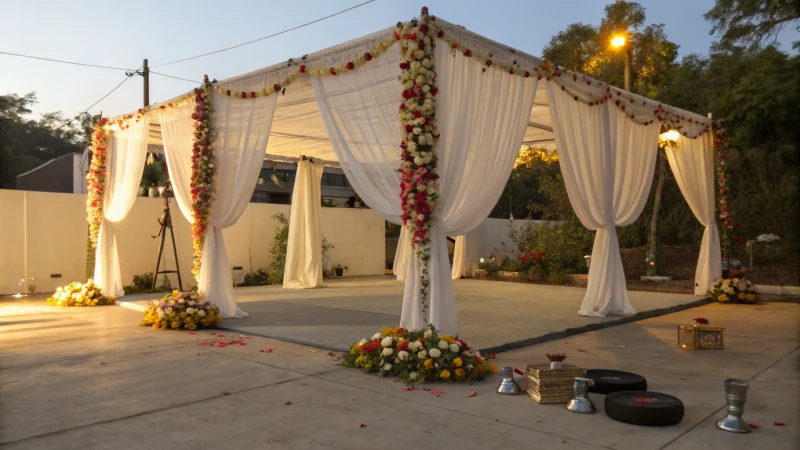
Wondering how long your marquee tent will stand the test of time?
A marquee tent typically lasts between 5 to 10 years, depending on material quality, maintenance, and environmental conditions. High-quality materials and proper care can significantly extend this lifespan, making marquee tents a valuable long-term investment for event planners and businesses.
I’ve always found it fascinating how the longevity of a marquee tent can be such a blend of art and science. It’s not just about buying any tent off the shelf; it’s about understanding the nuances that make each one unique. From my experience in the tent industry, I’ve realized that investing in quality materials pays off in the long run. This not only ensures the tent withstands various weather conditions but also enhances its durability. Let me share some insights on maximizing the lifespan of these tents, which I’ve gathered from years of working closely with both manufacturers and clients.
Marquee tents last 5 to 10 years with proper care.True
The lifespan is based on material quality and maintenance.
Environmental conditions do not affect marquee tent lifespan.False
Weather and environment significantly impact tent durability.
How Does Material Quality Affect Tent Longevity?
Imagine spending a night under the stars, only to be interrupted by a leaky tent. That’s when you realize: material quality is everything.
Material quality is the backbone of tent longevity. High-grade materials, like aluminum frames and PVC-coated fabrics, resist environmental wear, ensuring your tent withstands both time and the elements.
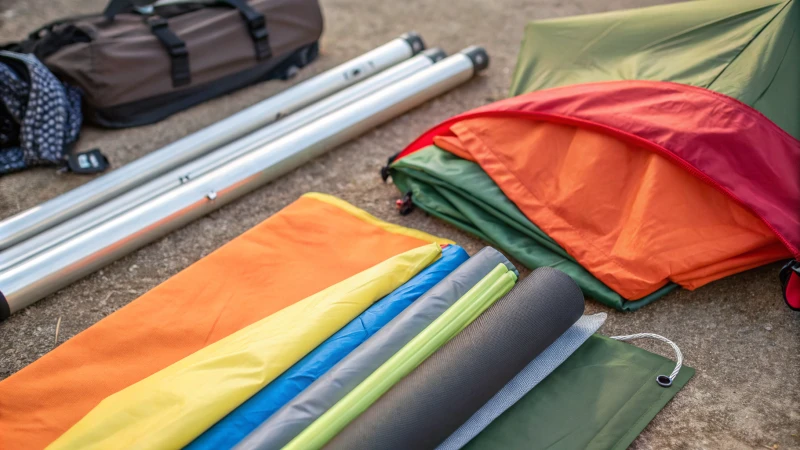
Key Materials and Their Impact on Longevity
When I think about my first camping trip, I remember being caught in a sudden downpour, relying on my trusty old tent to keep me dry. That night, I learned just how crucial the quality of materials is for a tent’s durability.
Aluminum Frames
Aluminum frames are like the unsung heroes of tent structures. My experience with tents boasting aluminum frames has been nothing short of impressive. These frames are rust-resistant1 and incredibly lightweight, making them ideal for frequent use. I once had a tent with a high-grade 6082-T6 aluminum frame that survived a surprise snowstorm during an unexpected early spring camping trip. It’s this kind of resilience that can significantly extend the life of your tent.
Fabric Quality
The fabric of a tent is its first line of defense against Mother Nature. Most tents use PVC-coated polyester, offering waterproofing and UV resistance. I vividly recall a time when my tent took a beating under the relentless summer sun. Despite this, it held up remarkably well because of its durable fabric. To maintain this durability, I make it a habit to clean the fabric regularly to fend off dirt and mold.
| Material | Features | Impact on Longevity |
|---|---|---|
| Aluminum | Rust-resistant, lightweight | Enhances frame durability |
| PVC Fabric | Waterproof, UV-resistant | Prolongs fabric lifespan |
Maintenance Practices
I’ve learned that proper maintenance is like giving your tent a health check-up. Regular cleaning not only keeps it looking new but also prevents issues like mold, which can weaken the fabric over time. Additionally, storing tents in a cool, dry place helps prevent mold growth and fabric weakening. Promptly repairing any tears is another trick up my sleeve to ensure my tent remains in top shape.
Weather Influence
Weather conditions are unpredictable, and they play a significant role in how long a tent lasts. I remember one winter when high winds threatened to tear down everything in their path. My tent stood firm because it was designed for such climates. Seasonal usage2 is also key; I’ve noticed that tents used only during certain times of the year last longer due to reduced exposure.
Understanding these elements helps me make smarter choices when buying tents, balancing cost with durability and performance. Whether it’s for a spontaneous camping adventure or a meticulously planned outdoor event, knowing that I have a reliable tent makes all the difference.
Aluminum frames are heavier than steel frames.False
Aluminum frames are lighter than steel, making them ideal for tents.
PVC-coated polyester fabric is fire retardant.True
PVC-coated polyester is designed to resist fire, enhancing safety.
How Does Weather Impact Tent Durability?
Ever found yourself in the middle of a storm, wondering if your tent will survive the night?
Weather affects tent durability by influencing material wear, structural integrity, and lifespan. High winds, heavy rain, and UV exposure can degrade fabrics and frames. Selecting weather-resistant materials and proper maintenance enhance tent durability.
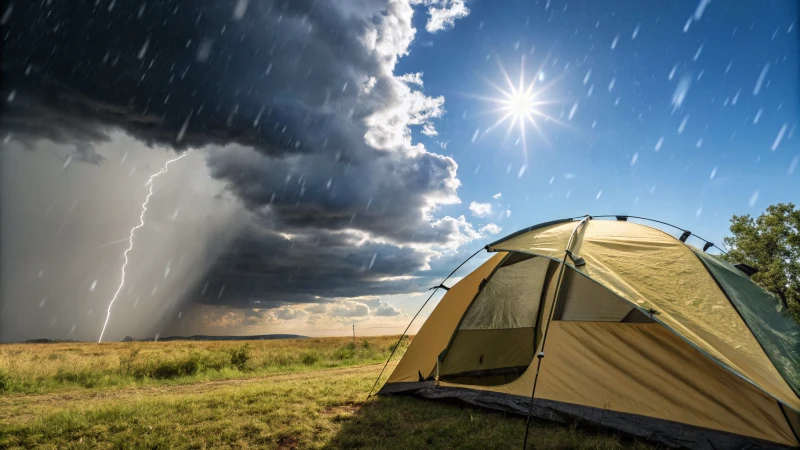
Material Degradation Due to Weather
I remember one camping trip where I was so excited to set up my brand-new tent. The sun was blazing, and I didn’t think much about how it might affect the fabric over time. A few months later, I noticed the once vibrant colors had faded, and small tears were starting to appear. It was then I learned that continuous UV exposure weakens tent materials like PVC-coated polyester3, making them more prone to damage.
| Weather Condition | Impact on Material |
|---|---|
| UV Exposure | Weakens fabric, causes fading |
| Heavy Rain | Can lead to leaks if not waterproof |
| High Winds | Stress on frames, potential collapse |
Understanding these effects really made me appreciate the importance of choosing the right materials for your tent. Knowing the limitations helps us make better choices as tent owners4.
Structural Integrity Under Extreme Conditions
When I first got into outdoor events, I underestimated the power of wind. Picture this: my tent almost flying away during a particularly gusty day at a festival. That’s when I realized the critical role of a tent’s structural design. High-grade aluminum frames are often recommended because they resist rust and corrosion. However, I’ve learned that even these can be compromised by extreme winds or heavy snow.
- Wind Ratings: Most quality tents are tested for wind resistance. Understanding these ratings helps in selecting the right tent for windy regions.
- Snow Load: In snowy climates, tents require extra support to handle snow weight, preventing collapses.
Maintenance Practices for Weather Resistance
I’ve found that maintaining your tent is like taking care of a car—it requires regular attention to keep it in top shape. Regular cleaning keeps the fabric UV resistant and mold-free. Proper storage and timely repairs can significantly extend your tent’s life.
- Cleaning: Helps maintain UV resistance and prevents mold growth.
- Storage: Proper storage during off-seasons minimizes exposure to damaging elements.
- Repairs: Immediate attention to any damage ensures prolonged lifespan.
Implementing these maintenance practices ensures your tent remains functional across various climates.
Seasonal Versus Year-Round Usage
If you’ve ever only used your tent for summer festivals, you’ll notice it stays in better condition than one exposed year-round. Seasonal use reduces wear and tear significantly. Proper off-season storage is key to preserving quality.
- Seasonal Use: Generally leads to reduced wear and tear.
- Year-Round Use: May necessitate more robust materials and frequent maintenance.
Choosing the appropriate type of tent based on usage frequency helps in mitigating weather-induced wear and tear. Investing in high-quality materials can offset some of the adverse effects brought by continuous exposure to harsh environments. Further insights into weather impacts5 can help in making informed decisions regarding tent purchases.
UV exposure weakens tent fabric over time.True
Continuous UV exposure degrades fabric, causing tears and fading.
High winds have no effect on tent frames.False
High winds stress tent frames, potentially leading to collapse.
How Can Maintenance Prolong the Life of Your Tent?
Ever found yourself battling with a stubborn tent zip in the middle of a storm? Trust me, proper maintenance could save you from such nightmares.
Maintenance is crucial for extending your tent’s life by preventing fabric wear, frame damage, and mold. Regular cleaning, proper storage, and prompt repairs keep your tent robust and ready for every adventure.

Understanding Material Vulnerability
Let me share a quick story. One summer, I took my beloved tent on a rugged camping trip. The poor thing faced everything from relentless sun to unexpected rain. I realized that without regular cleaning, dirt and debris were making my tent age faster than it should. Tents, especially those made from materials like aluminum and PVC-coated polyester, are susceptible to environmental conditions. Regularly wiping off dirt helped maintain the fabric’s integrity and UV resistance, avoiding premature wear.
| Component | Common Issues | Maintenance Tips |
|---|---|---|
| Aluminum Frames | Rust, corrosion | Clean with mild detergent |
| PVC Fabric | Mold, UV damage | Use UV protectant, dry thoroughly |
Cleaning isn’t just about aesthetics; it’s about keeping your tent in top condition so it feels like new every time you set it up.
The Impact of Weather Exposure
Weather can be a tent’s best friend or worst enemy. Think about that time when a gusty wind almost carried my tent away! High winds can strain the structure, while relentless sun exposure can degrade fabrics. It taught me to always apply UV protectant spray and ensure guy lines are taut. Moisture from rain or snow? A damp tent is a breeding ground for mold, so drying it out completely before storage is non-negotiable.
- High Winds: Strong winds demand extra attention to ensure all guy lines are taut.
- Excessive Sun: Regular application of UV protectant helps in shielding the material.
- Rain and Snow: Never store a wet tent. Dry it thoroughly to prevent mold growth6.
Importance of Storage and Repairs
Once, I made the rookie mistake of storing my tent while it was slightly damp. A month later, mold greeted me with open arms! Always dry your tent thoroughly before tucking it away in a dry, cool place. And if you spot a minor tear, don’t wait—repair it immediately with a handy repair kit to avoid further damage. Regular checks can catch issues before they escalate into something major.
Usage Frequency and Customization
Using your tent often? You might notice wear and tear creeping in faster. High foot traffic or environmental stress during frequent events accelerates degradation. I learned that customizations like additional windows or sidewalls can offer more protection but also add stress to the frame during bad weather.
Consider these factors when planning custom features7 for your tent setup.
Remember these maintenance tips, and your tent will reward you by being a reliable companion on many more adventures.
Regular cleaning prevents UV degradation in tent fabric.True
Dirt buildup reduces UV resistance, so cleaning maintains fabric integrity.
Storing tents wet can extend their lifespan significantly.False
Wet storage promotes mold growth, reducing tent lifespan.
How Does Frequency of Use Impact Tent Lifespan?
Ever wonder why your tent seems a little worn after each adventure? There’s more to it than just time spent in the wild.
Frequent use of tents exposes them to harsh environmental elements and physical stress, which can shorten their lifespan. However, regular maintenance and gentle handling can help extend their durability, ensuring your tent lasts through many adventures.

Understanding Material Wear and Tear
I remember my first camping trip, all excited to set up my shiny new tent. By the end of the weekend, I noticed little signs of wear—scuffs on the fabric, a slightly strained zipper. That’s when I realized tents, much like us, wear out with frequent use. The more you pop it up and pack it down, the more strain you place on the seams and fabric.
Maintaining a consistent care routine8 became my little ritual after each trip: a thorough clean-up and making sure it’s stored in a dry spot. It’s amazing how much these simple steps can help prolong your tent’s life.
Environmental Exposure and Its Effects
I’ve camped in all sorts of weather—under the blazing sun, during unexpected showers, and even through windy nights. Each time I set up my tent, I knew it was braving the elements with me. Prolonged exposure to UV rays can weaken the fabric, while moisture invites mold if not dried properly.
One of my best investments was a UV protective cover9. It’s like sunscreen for your tent! Protecting it from the sun when it has to stay pitched for long stretches really makes a difference.
Maintenance Practices That Extend Lifespan
After every adventure, I have a little routine: checking for any sneaky tears or holes that might’ve appeared. It’s amazing how a quick repair can save your tent from bigger damage down the road. Zippers get a good old lubrication too; it keeps them zipping smoothly without jams.
Here’s what my maintenance checklist looks like:
| Maintenance Task | Frequency |
|---|---|
| Clean fabric | After each use |
| Inspect seams | Monthly |
| Lubricate zippers | Bi-monthly |
| Check poles for damage | After each setup |
Impact of Use Type on Tent Durability
The type of events you use your tent for can also affect its lifespan. I’ve used mine for family gatherings and larger festivals. Naturally, those bigger events put more strain on the tent than a quiet camping trip would.
It might be worth considering tents with reinforced seams or extra structural support features10 if your events involve a lot of people or take place in windy areas. You’ll thank yourself when your tent stands strong against unexpected gusts.
Strategic Usage Planning
I’ve learned to plan my tent’s usage strategically. If I know I’m going to be using it frequently over a short period, I try to rotate between different tents. It gives each one a chance to rest up between uses.
By understanding how our usage patterns affect our gear’s longevity, we can make smarter decisions that keep our tents—and our memories of adventures—lasting longer.
Frequent tent use accelerates material degradation.True
More use increases stress on seams and fabric, leading to faster wear.
Tents exposed to UV rays last longer than those stored indoors.False
UV exposure degrades fabric over time, reducing tent lifespan.
Conclusion
Marquee tents typically last 5 to 10 years, influenced by material quality, maintenance, and environmental conditions. Proper care can significantly extend their lifespan for event planners and businesses.
-
Learn why aluminum is favored for its lightweight and corrosion-resistant properties, making it ideal for tent frames. ↩
-
Discover how storing tents during off-seasons can prolong their lifespan by minimizing exposure to harsh conditions. ↩
-
Learn about the properties of PVC-coated polyester in tents and how it withstands different weather conditions. ↩
-
Discover how different weather elements impact various tent materials. ↩
-
Explore detailed information on how weather influences the lifespan of tents. ↩
-
Discover effective cleaning methods to maintain your tent fabric’s integrity and prevent quick wear. ↩
-
Explore custom options that enhance your tent’s durability and functionality during various weather conditions. ↩
-
Learn effective maintenance routines that can help prolong your tent’s lifespan. ↩
-
Discover how UV protective covers can safeguard your tent from sun damage. ↩
-
Explore additional structural supports that enhance tent durability in adverse weather. ↩


